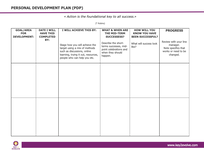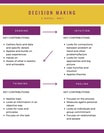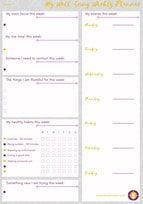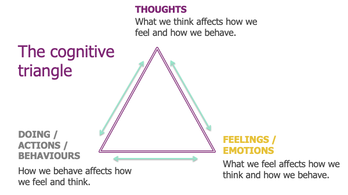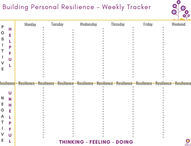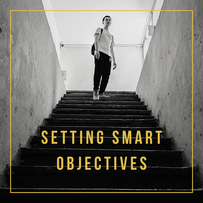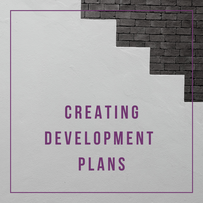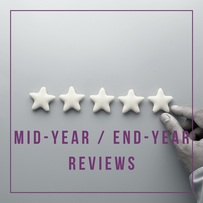RESOURCES FOR YOUR PROFESSIONAL & PERSONAL DEVELOPMENT
Professional DevelopmentMBTI Workshops / 1-2-1 Coaching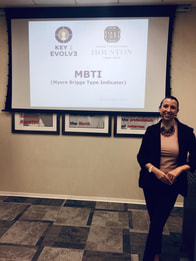
Houston DFS - MBTI for career development
Using a personality profiling tool is a fantastic way to develop leadership skills, such as influencing, making decisions, building engagement through positive relationships.
I am very fond of The Myers-Briggs Type Indicator (MBTI), I am a certified level 1 & 2 coach and I've used it both in a professional context with leaders to understand their leadership styles and develop their career. The MBTI should be in the 'concrete management tools' goody bag for any first time leader, supervisor or team lead. I find this tool to be highly versatile and useful when coaching as it helps contextualize our actions and thought patterns and those of others. If you do it the right way, investing in the MBTI as a team building activity for dysfunctional teams does not only bring individual contributors closer together, it also create synergy and build engagement.
I have seen best results by following these simple steps:
You can explore the 16 preferences in the document below.
Personal Development Plan (PDP)Personal development plan versus annual performance objectives, what’s the difference?
Annual objectives are set at the beginning of the year. They are aligned to the business strategy, linked to your existing role, critical to your team’s success. They are short term and can be measured mid-year and at the end of the year using KPIs. Your personal development plan’s objectives are personal to you. They are aligned to your interests, skills, values, attributes and career development aspirations. They form a longer-term plan (2-5 years) and can also be measured against specific defined criteria. Remember in any organization, performance development tends to be manager led and career development tends to be employee led, therefore for your professional development, it’s important to have a personal development plan (PDP) in place, sitting alongside your annual performance objectives. I’m not sure what to put in there, where do I start? First, explore your interests, skills, values and personal attributes. An easy way to do this is to ask friends, colleagues, managers, family members or to do an online questionnaire such as the Hogan or the MBTI personality inventories or the CliftonStrengths by Gallup. Next you will need to explore your options with a friend, a well trusted colleague, your manager or a professional coach. Then develop a plan and discuss it with your manager to see if they, or the business, can enable some of your actions. Finally, implement and review as you go along, remembering to celebrate milestones along the way! Download this PDP template to get you started.
Decision making - MBTI Z ModelBecause leaders have to make decisions all the time, and it is often easy to fall into the pitfall of having impulsive reactions. A good leader needs to be able to define their position on any given situation and to remain fair, unbiased and appropriate when going through and explaining their decision-making process.
As a leader, every week, you are faced with hundreds of opportunities to make decisions. All these decisions can appear to carry not much value but cumulatively, they show patterns and an insight into a leader. If you want to build trust and confidence amongst your peers and your employees you need to have some systems to help you make these decisions. Most often than not, what is important in decision making, is not the actual decision itself but explaining the route you took to reach that decision. When leading a team, you will have a diversity of personalities and opinions to manage. Many amongst your employees will not share your decisions, however when you are able to demonstrate and explain how you came to a certain conclusion, most will be onboard. Below is one of the decision making model I talked about in a recent article. It is based on the MBTI type theory. According to type theory, the best decisions use both kinds of perception (S and N) in order to gather all useful information and both kinds of judgment (T and F) to ensure that all factors have been weighed. Because we prefer one particular kind of perception and one kind of judgment, we are likely to focus on our preferred ways and lose the positive contributions of our non-preferred ways:
Using all the perspectives identified by type can feel awkward at first, but with practice this approach will result in sounder, more considered decisions. You can download the document here, the full version with the questions is in the members' area.
|
Personal DevelopmentYour Weekly Wellbeing Weekly PlannerI truly believe in the power of intention and self-reflection to build a richer life full of significance. Starting your week slowly by thinking ahead and setting up a weekly routine will help your focus on the things that really matter to you. Print this weekly planner and start populating it with a key goal for the week, some healthy habits to tick as the days go by, a little 'me-time' to let go of stress and so on.
Week after week, you'll feel empowered, you'll keep track of your achievements, you'll build better relationships etc.
The Resilience Weekly TrackerUse this weekly tracker to record useful and helpful behaviors, thinking patterns and emotions and contrast them with less useful ones.
Tracking these over a period of several weeks will help you identity both useful patterns to build your resilience and unhelpful ones to stop. Download the weekly tracker below to list your thoughts, behaviors and feelings as per the cognitive triangle. And get in touch if you would like me to send you a FREE 16-page guide to building self-resilience, full of insights and practical exercises.
Mental Health Awareness - Quick FactsYou do not need to be diagnosed with a mental illness to experience minimum wellbeing, and you can be diagnosed with a mental illness and experience maximum mental wellbeing!
In my online course I explore some key perceptions about mental health, I provide useful conversation starters of those who don't know what to say, I explain when it's ok to help and when you should refer a person. Through case studies we look at the mental health continuum and throughout I give tips and handouts to help people feel more comfortable talking about mental health. In the PDF document I am sharing some insight into minimum wellbeing and maximum wellbeing as well as some useful contacts and websites.
Suicide Prevention - Social Media Icons for SeptemberSeptember is Suicide Prevention Awareness Day/Week/Month, use social media icons to promote awareness (banner, background, logo).
| ||||||||||||||||||||||||||||||||
Members' Area
|
Don't forget to visit the members' area for exclusive content and downloadable resources such as worksheets, team talks, videos, to help you build skills in specific areas such as, performance management, building high performing teams, developing leadership attributes, change leadership, managing team conflict, building engagement, etc. Access to the members' area is FREE with any leadership coaching package! |
Webinars For Professional Development
|
In this micro learning pod you can explore:
• The Performance Management Cycle (the WHAT / the HOW) • The differences between vision, mission, strategy & objectives • The benefits of bringing the strategy to life • Some concrete steps on how to do it Members' area worksheet: - Translating the strategy (5 pages) |
In this micro learning pod you can explore:
• The SMART concept of setting objectives • Key questions to ask yourself when planning objectives • Some concrete steps on how to do it • The principles of stretch assignments Members' area worksheets: - Writing SMART objectives (7 pages) - Creating a stretch assignment (14 pages) |
In this micro learning pod you can explore:
• How to get started with your personal development plan • Key questions to ask yourself to help you plan and think about emerging and future skills • Useful tools to help you develop a high-quality development plan. Members' area worksheets: - Creating a personal development plan (7 pages) - Personal development plan template (1page) - Running a personal SWOT analysis (4 pages) - Running a personal PEST analysis (4 pages) - Running a personal GAP analysis (4 pages) |
|
In this micro learning pod you can explore:
• Informal performance management • Continuous coaching & the manager coach • Useful tools to help you coach and give feedback to your team members Members' area worksheets: - Coaching skills (13 pages) - Feedback skills (6 pages) - Coaching tool: Delegating & Empowering (3 pages) - Conducting successful one-to-one meetings (6 pages) |
In this micro learning pod you can explore:
• Mid-year & end-year reviews • Tips to manage difficult conversations • Performance vs. potential Members' area worksheets: - Conducting performance reviews & appraisals (14 pages) - Managing under-performance (5 pages) - Managing difficult conversations (8 pages) - Developing my team: performance vs. potential (6 pages) |
Articles
|
* Developing leadership skills through the performance management cycle
This article explores how performance management, both the what and the how, gives you many opportunities to practice and apply key management skills while demonstrating outstanding leadership skills. This article explores how performance management, both the what and the how, gives you many opportunities to practice and apply key management skills while demonstrating outstanding leadership skills. * Why developing your people matters
Full of insight and tips to help you read between the lines of your job description. A great read if you are a people leader and want to focus on development. * Understanding culture & big picture thinking
This article looks at the importance for a leader to be aligned to the organization's vision and culture to develop synergy, motivation and engagement. It gives you useful & practical tips to start on this complex journey. * Leading organizational change from the middle - professional coaching for middle managers
So much of the success of an organization sits on the middle management population. This article explores the importance of professional coaching for middle managers and the ripple effect of coaching. * 5 Tips to thrive as a virtual manager
Being an excellent virtual manager does not happen overnight. It takes time, efforts, trials, and errors. In this short article, we’ll explore some key capabilities a middle manager needs to develop to thrive remotely. * Agile culture and leadership
Within an organization, leadership agility is an asset to develop culture, work environment, and implementation of change. Leaders need to embrace essential agile values and practices to create a context in which employees can thrive. |
* The road to hikikomori
This article looks at the stigma associated with mental health, it provides interesting statistics for the US and the UK and it reflects on our society, modern technology and infobesity. A good read if you are interested in some very current issues. * Getting to know you MBTI & Carl Jung
This article summarizes the life and work of Carl Jung, analytical therapy, the archetypes and where the history of the Myers-Briggs Type Indicator (MBTI). A good read if you are interested in understanding a little bit more about the origins of the MBTI questionnaire. * Personal resilience: Develop your self-awareness & praise yourself
This article explores personal resilience and gives you a lot of tips to start on you journey to building your resilience. It's an abstract form 'The Little Guide to Building Resilience' that will help you with your personal growth. * The new normal: Stress in the US & in the UK
This article talks about stress! It explores the new normal by comparing statistics from both the US and the UK. The facts depict a sad picture of our world and make it an alarming read. |
More Free Resources
Access some of my online course content for free!
MENTAL HEALTH
AWARENESS
Promote 'Mental Health Awareness' in the workplace and create self-efficacy, raise awareness and fight the mental health stigma.
This course offers train-the-trainer sessions explaining how this course can be used by any HR or L&D professional, manager, individual to run a bite-size (45min +) interactive training session or to conduct short remote interactive team discussions on specific mental health awareness topics.
You will get over 25 downloads to help you with your project including animated PowerPoint presentations, infographics, session notes, participant's guide , shareable quizzes, PDFs, worksheets etc.
The course has been awarded a top course badge after the content, freshness, resources & feedback were evaluated!
This course offers train-the-trainer sessions explaining how this course can be used by any HR or L&D professional, manager, individual to run a bite-size (45min +) interactive training session or to conduct short remote interactive team discussions on specific mental health awareness topics.
You will get over 25 downloads to help you with your project including animated PowerPoint presentations, infographics, session notes, participant's guide , shareable quizzes, PDFs, worksheets etc.
The course has been awarded a top course badge after the content, freshness, resources & feedback were evaluated!
Other Free Resources
Leadership Blogs |
ResiliencePositive Psychologie - Seligman's resilience PERMA model
R C Fraley - Adult attachment theory
Psychiatry (Edgmont) - Social support
RC Psych - Expressive writing
E.E. Werner - Kauai longitudinal study of resilience
Cleverism - The PERMA model
|
Mental Health & WellbeingRethink Mental Illness - 100 ways to recovery
Black Dog Institute - Exercise and depression
Able Futures - General ressources and support
NHS UK - Live well pages
This way up - I feel stressed
|


